By Jo Ann Barefoot • June 15, 2022
In the early summer of 2019, the small band that had just opened AIR’s doors — myself, co-founder David Ehrich and chief of staff Lexi Frazier — was tasked with an ambitious project for such a fledgling organization.
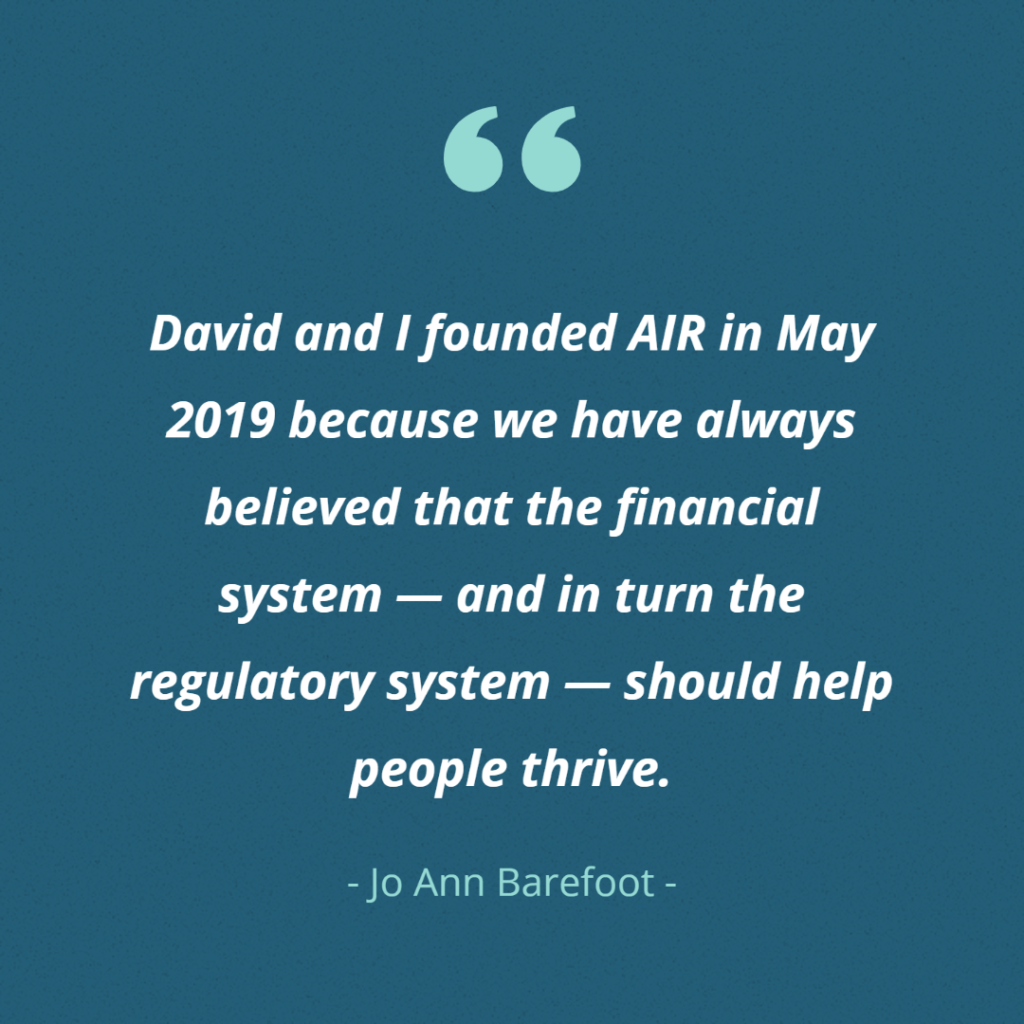
The Financial Conduct Authority in the U.K. was planning a bicontinental TechSprint — a kind of hackathon where tech startups present innovation ideas for solving regulatory problems — on anti-money laundering. The event was to be held in July 2019, but with just weeks to go the FCA had not found a Washington regulator willing to host the U.S. counterpart. Nick Cook, then the FCA’s innovation chief who now serves that role for AIR, asked us to do it.
At the time, AIR was so new that we didn’t even have a logo. We were just using a photo of a robot. We had to move fast and drop everything to make the event happen. The thought was that AIR — unencumbered by the internal protocols of a government agency — could more nimbly serve as host and the U.S. regulators could participate however they wished. We pulled together a successful, transatlantic TechSprint, drawing in global teams of experts to participate. The head of the FDIC served as a judge and keynote speaker. The winning teams presented their solutions to the director of FinCEN.

Three years later, we have dramatically stepped up our efforts to help regulators around the globe develop innovation platforms to ensure that financial consumers thrive in the digital age. When AIR launched, we knew we weren’t alone in recognizing the need and opportunity to modernize financial regulation. Still, in the early days, we often felt like a voice in the wilderness. The financial regulatory system is a global Leviathan — massive, old, limited by political sensitivities and other complexities — and there were many people who thought our mission was impossible.
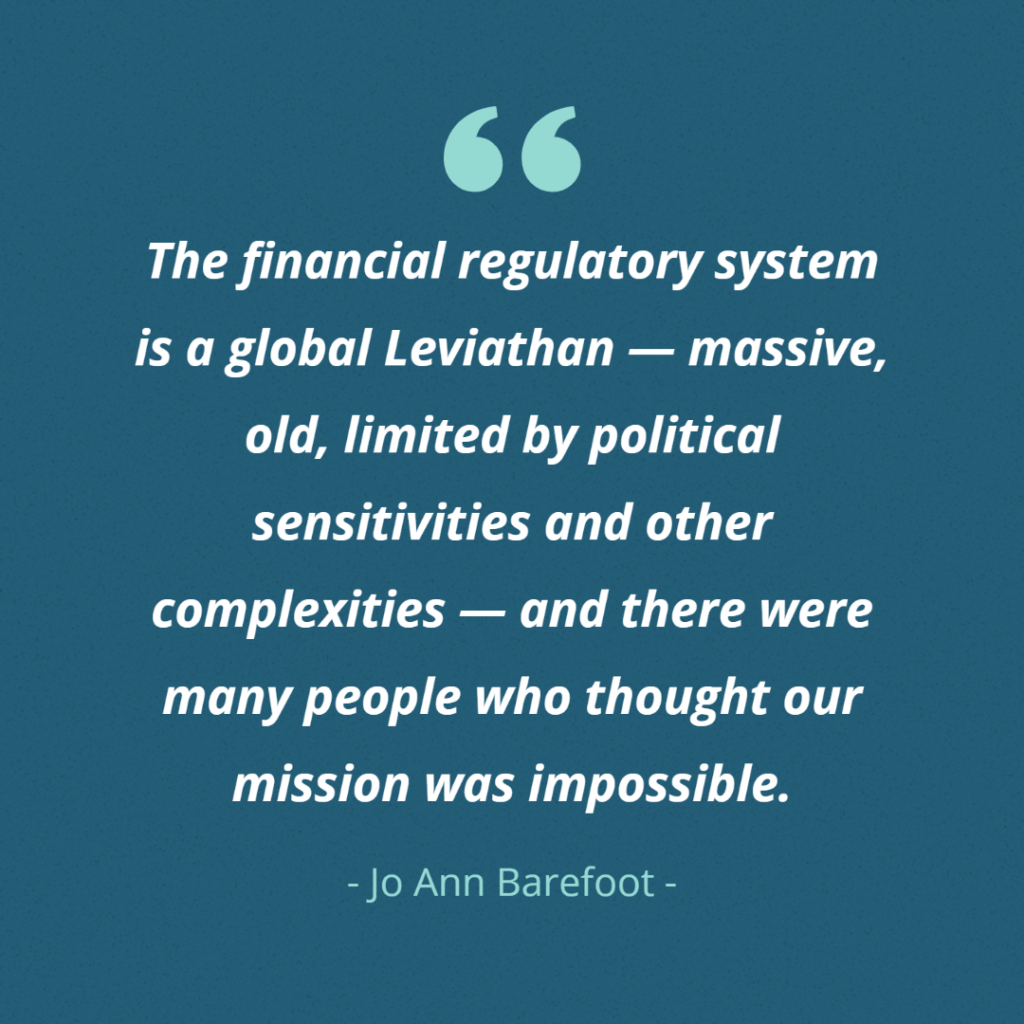
But just as AIR has grown in a short time — more than tripling the size of our staff — the financial regulatory system is making progress in upping its digital game. In doing so, regulators are more effectively fulfilling their mission to better people’s financial lives. Today, all the federal financial regulators in the U.S., and many globally, are actively working on innovation agendas, focused either on how to oversee and regulate industry technology, or how to adopt digital technologies for themselves — or both. There have been ample successes as AIR has matured over the past three years — during a time of unprecedented international turmoil and seismic change in the global community. As we position the organization to continue to help guide regulators on this path, we are excited about what the future will bring.
David and I founded AIR in May 2019 because we have always believed that the financial system — and in turn the regulatory system — should help people thrive. Historically, government policy has made huge strides in reaching that goal. Regulation has done a lot of good. Statutory and regulatory requirements have worked towards mitigating overt forms — and some subtler forms — of racism and sexism in financial markets, as well as many other predatory practices.
But even though regulation is necessary, regulation as it is designed today is not optimal. We at AIR have written many hundreds of pages of white papers and reports and op-eds on why this is the case and what to do about it. In part because digital innovation in the financial services industry is still way ahead of where the regulators are, current regulatory frameworks still cannot take us to a place where most consumers can access all the services they need, receive fair treatment, and achieve financial health. If we want better results, we have to keep working at this.
About 10 years ago, I awakened to the notion that new digital technology was transforming financial products and delivery in ways that, in theory, could solve most of the problems that financial consumers face. It could make services more affordable and fully accessible. It could make services easier to understand, evaluate and manage. It could make it easier for consumers to seek better options and switch. It could allow more consumers to qualify for safe credit.
But while researching these possibilities as a senior fellow at Harvard, I had an unfortunate epiphany: While innovations had the potential to make life better for financial consumers, we probably would not do so because we would almost certainly regulate them wrong. That wouldn’t be the fault of the regulators. Having been Deputy Comptroller of the Currency myself, I knew that financial regulatory agencies simply were not designed to deal with technology change like this, that is morphing so rapidly and breaking the molds of our legal and regulatory frameworks.
For better or worse, I decided to appoint myself to try to solve that problem.
I spent the next four years researching, writing, speaking and networking to connect the nascent global community of like-minded regulatory innovators who were planting seeds for change. At the time, fintech was not even on the radar of most financial regulators, let alone words like “regtech” and “suptech.” Then, in late 2018, I joined forces with David, a banking veteran, co-founder of the credit card fintech Petal and a former leader of the BankOn efforts. We had both spoken together at a conference and I mentioned in passing that I was organizing a nonprofit under a grant from the Omidyar Network and wondered if he could recommend an executive director. To my surprise and delight, David raised his own hand.
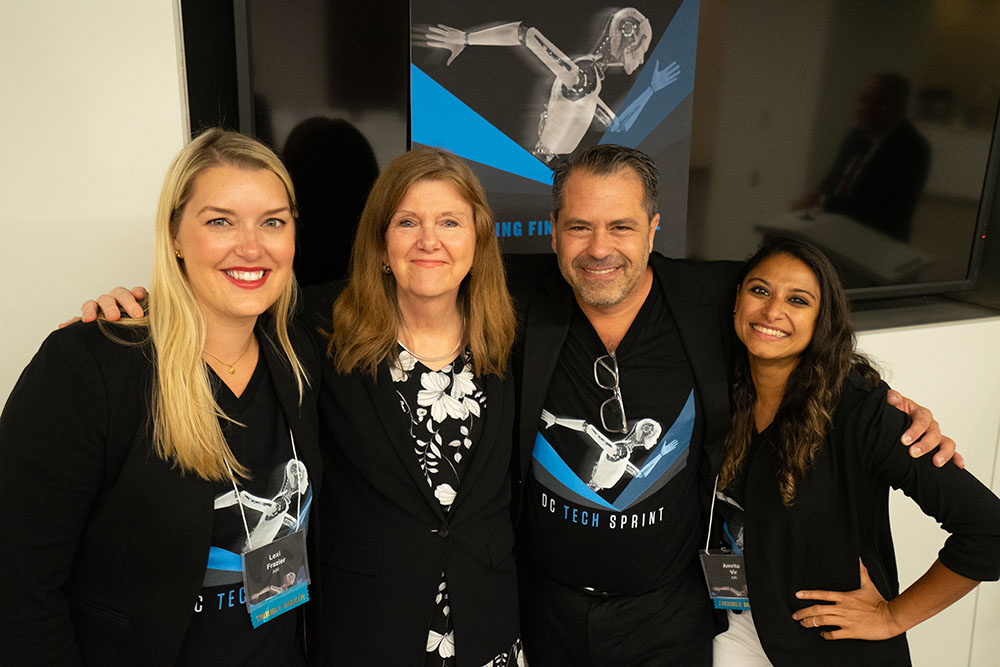
Working with Lexi, we began standing up AIR in cooperation with Omidyar and its affiliate, Flourish Ventures, with the visionary Kabir Kumar as our thought partner. The opportunity to co-host the FCA’s AML TechSprint presented itself before we even had our feet under our desks.
A great deal has happened in the three years since. We have done many more TechSprints under the leadership of former American Express executive Randy Repka. Many of our sprints have had partners like the FCA (again), India’s Reserve Bank Innovation Hub, the New York Department of Financial Services, the Conference of State Bank Supervisors, and the Independent Bankers of America through its Venture Center.
The sprints have covered topics ranging from saving small businesses hit by the pandemic (three sprints) to women’s economic empowerment (two international sprints) to digital regulatory reporting to curbing use of cryptocurrency to purchase online child sexual abuse material. We have strengthened our connections with regulators seeking our expertise and help. Looking ahead, we have a TechSprint coming up with the U.S. Departments of State and Treasury exploring how to use technology to root out corruption, as part of the U.S. Summit for Democracy initiative. We are also planning a TechSprint this fall on reducing the carbon footprint of crypto mining. The sprint on protecting children from online sexual abuse imagery actually found a likely crime in progress, which we were able to refer immediately to law enforcement. We can see our work having real-world impact.
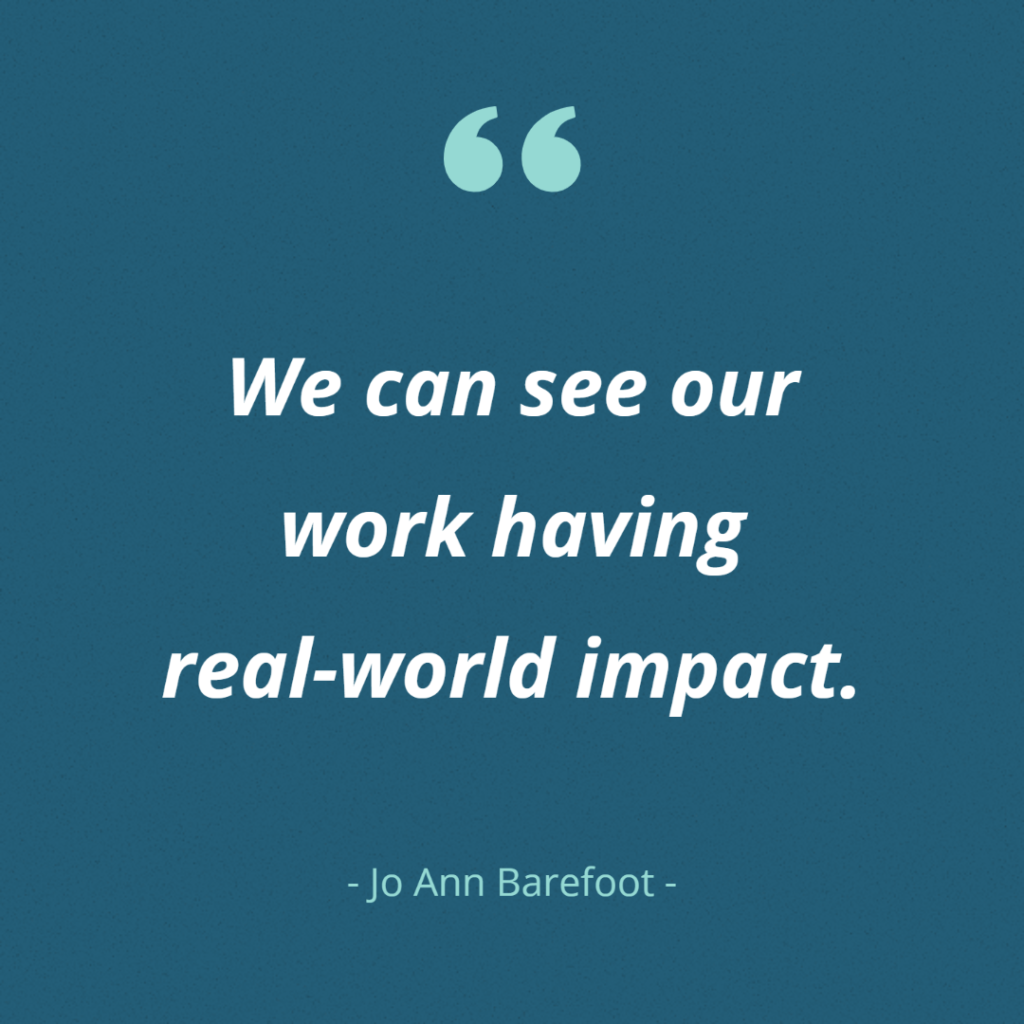
We are also working with the National Bankers Association to help address the technology challenges faced by Minority Depository Institutions (MDIs) as they work to serve communities of color and help close the racial wealth gap.
Over our three years we have hosted countless conferences and roundtables, published numerous papers including our seminal Regtech Manifesto on why and how regulators should adopt a digitally native design, and continued producing the Barefoot Innovation podcast show. We speak to tens of thousands of people each year. Our activities span the planet — Singapore, the U.K., Columbia, Kenya, Australia, Nigeria, Hong Kong, Canada, France, South Africa, Ireland, Indonesia, Mexico, Israel, the UAE, Malaysia, France, the Philippines, Peru and many more. We also work with countless international organizations — the World Bank, the International Finance Corporation, the United Nations, the Bank for International Settlement, the G20, Women’s World Banking, and Mojaloop, to name a few.
We’ve enjoyed the support of a growing group of donors. In addition to our seed funding from Omidyar and Flourish, we receive grants and contributions from sources like the Bill and Melinda Gates Foundation, the State Department, and FINRA.
In the process, we’ve grown to 10 people. Last fall, we brought Nick on board from the FCA as our Head of Global Strategy and Partnerships. We also added his former FCA colleague Shelley Cross, who helps lead TechSprint work along with Rushka Tcholakova. In addition, we recently hired Joe Adler, former Washington bureau chief of the American Banker to lead content operations, and Joe Schember to head marketing. Katherine Hartley keeps the trains running.
AIR’S impact is hard to measure. In work like this, it’s often hard to separate causation from correlation. But signs of progress over the past 36 months are easy to find. The Federal Reserve has appointed its first-ever Chief Innovation Officer, Sunayna Tuteja. The CFPB has held two TechSprints. The bank regulatory agencies held a policy sprint on digital currencies. The FDIC and FinCEN held a joint TechSprint on digital identity. There are many more examples.
U.S. regulators are studying all the key technology topics, issuing requests for input on issues like use of artificial intelligence and whether to update rules on third-party risk management as banks increasingly partner with fintech and regtech vendors. The Biden administration’s recent executive order calling for policy action on crypto and digital assets will likely result in more activity.
When we started AIR three years ago, it was rare to find members of Congress focused on regulating fintech, much less regulatory technology. Today the House Financial Services Committee, under Chairwoman Maxine Waters, has created two task forces to deal with these issues. Heightened attention paid to crypto’s regulatory issues has supercharged all of this kind of work.
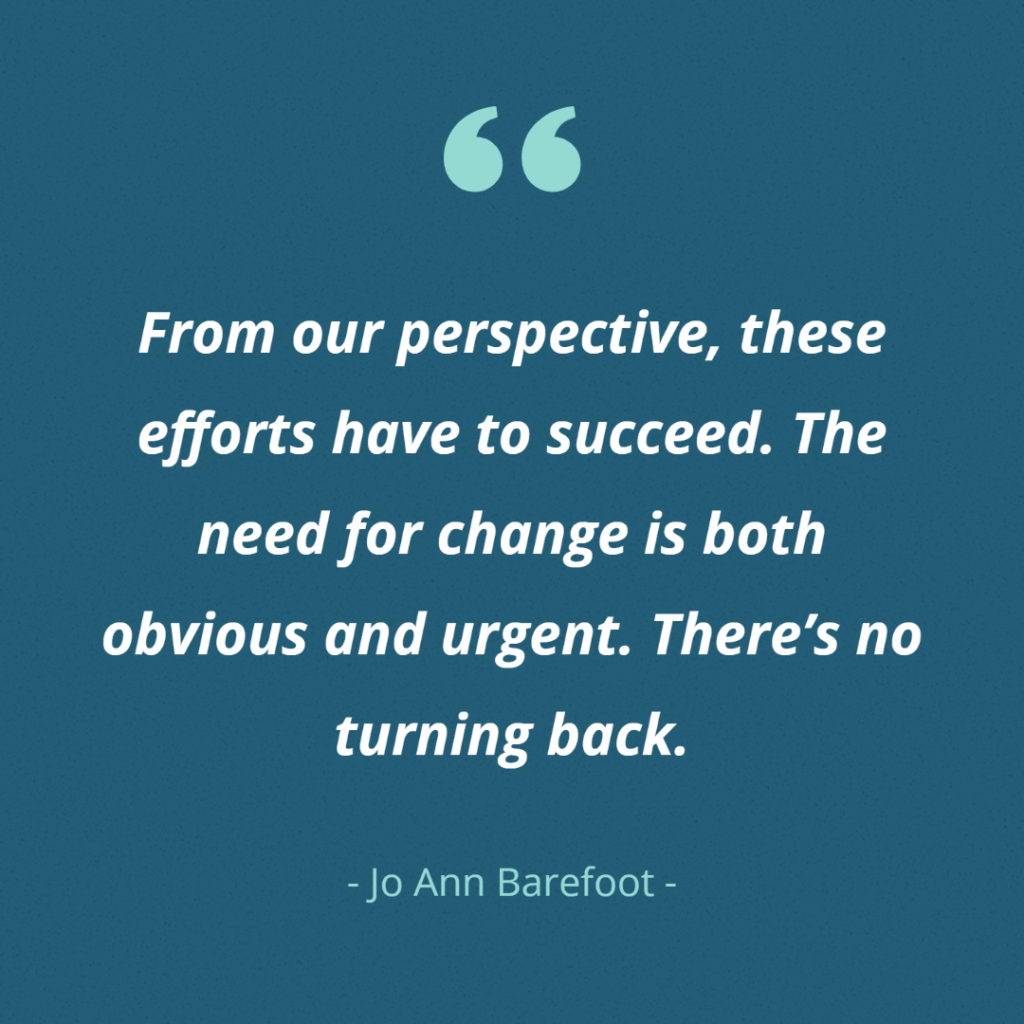
The work has barely started. The regulatory design we have now is still mismatched to the continued digital overhaul of financial services. That overhaul will continue to accelerate, and if the regulatory system can’t catch up, the result will be under-regulation in some cases, over-regulation in others, and at times just mis-regulation.
Our collective progress in righting this ship to date raises hope that we can reach the goal of making financial regulation massively and profoundly better, resulting in a system that protects consumers from new harms – as well as old ones – makes better use of government resources, opens up the financial system to a broader and more diverse consumer base, fosters healthy competition, and allows innovation to flourish. From our perspective, these efforts have to succeed. The need for change is both obvious and urgent. There’s no turning back.

Stay informed by joining our mailing list